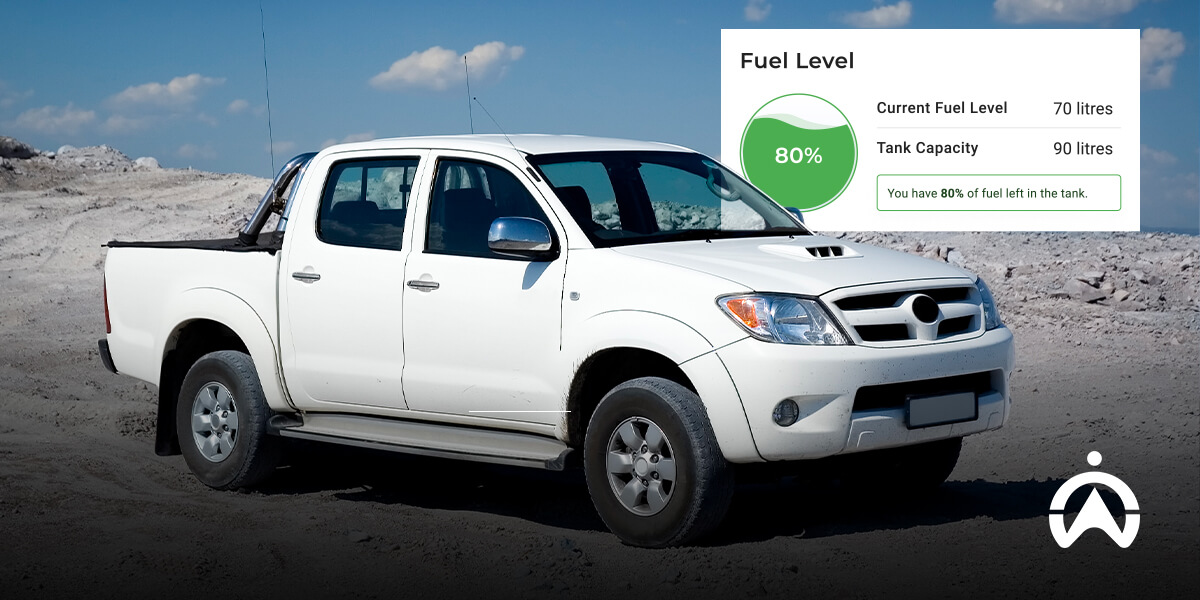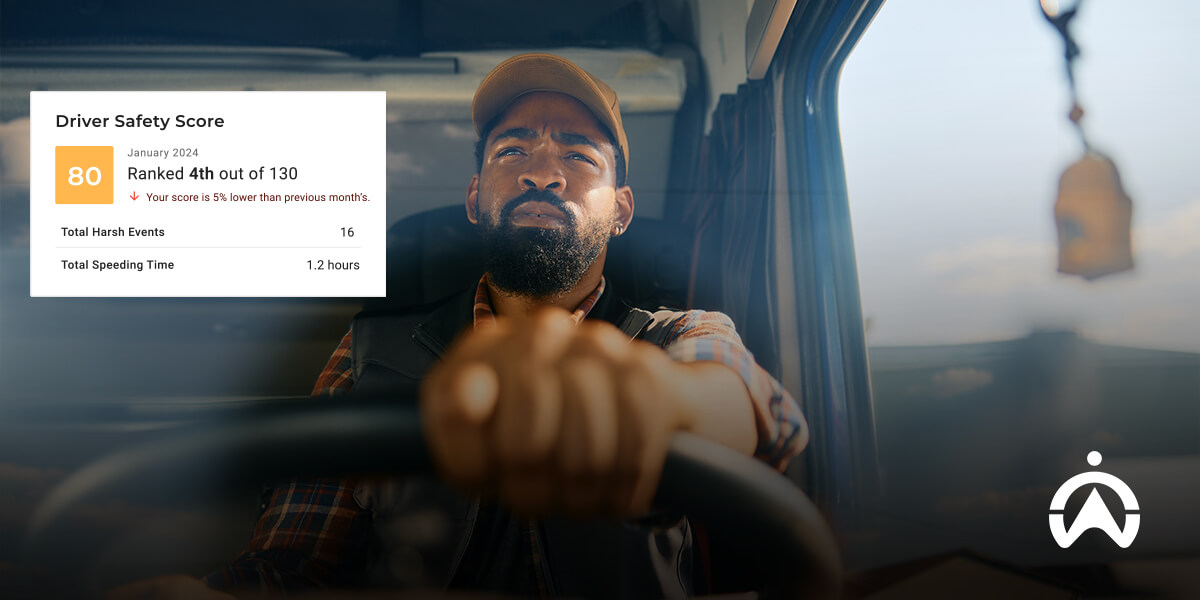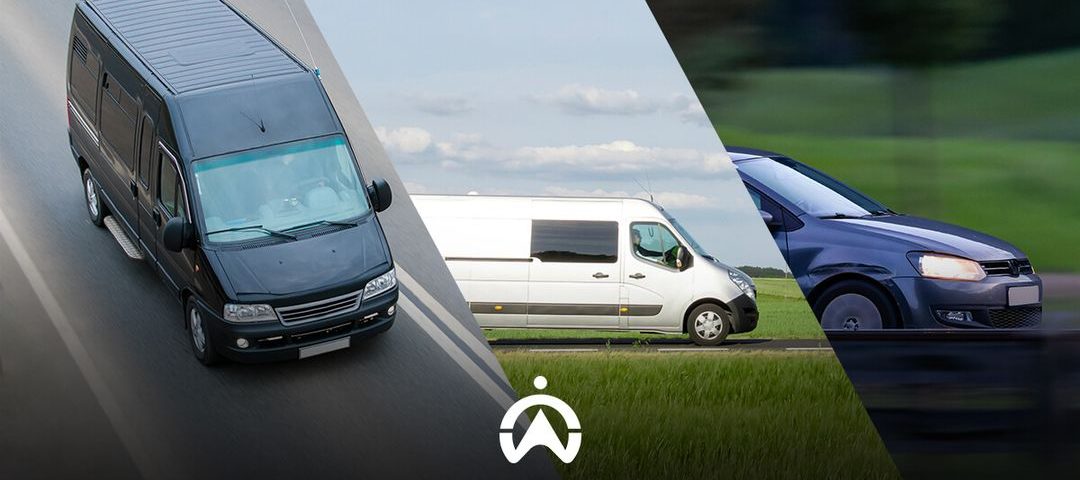What is a Good Fleet Car? A Complete Guide
A good fleet car in Eswatini is any car that provides your company with relatively low fuel costs, driver safety, low maintenance, and a high resale value. Other factors that could influence your vehicle decision might include tyres, vehicle lifespan, cabin space, and other tailored needs of your company.
At Cartrack, we’re all about finding ways to cut your organisation’s overheads and provide you with more efficiency and asset protection. That’s why we constructed this article to help you decide on the best fleet vehicle options for your business.
What is considered a good fleet car in Eswatini?
A good fleet car in Eswatini is one that has a reputation for reliability, is affordable to run, and keeps its resale value. Popular options include:
- Fuel efficient bakkies
- Cars that are light on fuel
- Sedan brands with a long and reliable reputation
- Vehicles with large load capacities
- Vehicles with decent drive power when fully loaded
These models are trusted for fuel efficiency, low maintenance, and their decent resale value.
When choosing multiple vehicles for a fleet, some factors that exceed a regular vehicle purchase should be considered. The most important is the ‘Total Cost of Ownership’ of each vehicle. This goes beyond the initial purchase cost of a car and asks the question, “What is a good fleet car in terms of the total amount of money it will cost to buy, run, and eventually sell?”
What is ‘Total Cost of Ownership’ when choosing a fleet vehicle?
Total Cost of Ownership (aka TCO) when choosing a fleet vehicle means the full cost of running it and later selling it. (You can also include the purchase price in this calculation.) It mostly includes:
- Fuel use
- Regular maintenance
- Repairs
- Insurance
- Licence fees
- Resale value
Knowing your TCO helps you pick vehicles that save you money in the long run. That’s why it’s an important calculation to make before you settle on just any car brand.
Why is fuel efficiency important for fleet cars?
Fuel efficiency is important for fleet cars because of the time they spend on the road. Because your company will be spending a large portion of funds on fuel, any obtainable fuel savings over your entire fleet should be identified and implemented.
Although most fleets prefer to use diesel over petrol for their cars, this on its own doesn’t always provide the maximum savings you can obtain. Curbing fuel theft, discouraging idling, and finding the optimum routes for your drivers are just some ways you can make a significant difference in your fuel costs.
But one of the biggest differences in fuel savings will come from choosing a good fleet car to begin with. Cars that generally use less fuel per kilometer should be considered over ‘gas-guzzlers’. Choosing between manual and automatic can also make a difference in your fuel costs, so pick wisely.

What role does vehicle safety play in fleet selection?
Vehicle safety also plays an important role in your fleet vehicle selection. Safer cars generally save you in the long run, and are well worth the extra initial purchase costs for these vehicles.
How does choosing a safe car for your fleet save you in the long run? Just look:
How do maintenance costs affect fleet car selection?
Maintenance costs affect your fleet car selection by influencing your running expenses. If you choose cars with higher service or repair costs (like a cheaper brand over a better-known one), your fleet budget will quickly go up. Cars with affordable parts, reliable servicing, and strong dealer networks in Eswatini help you cut downtime and reduce repair costs.
How important is vehicle resale value in choosing fleet vehicles?
Resale value is a super important factor to consider when choosing fleet vehicles. Every car you buy is an investment, and you should try to get as much back as you can when you sell that investment later on. Many car brands in Eswatini have good resale values, and choosing these over some of the emerging cheaper brands is wise—especially when the time comes to sell your vehicles.
What other factors are worth considering?
Other factors worth considering before deciding on a good fleet car for your business include:
- What tyres it carries
- How comfortable your drivers will be
- The load each car can carry
- Car warranty
- Eswatini road conditions
- Bulk purchase discounts and ongoing dealer support
Here’s a more expansive overview to keep in mind:
Which brands are most popular for fleet cars in Eswatini?
The most popular fleet car brands in Eswatini are ones that offer a mixture of fuel efficiency, robustness, low maintenance, and safety. These factors make them among the best fleet cars for Eswatini companies. Some also come at relatively low purchase prices, whether you’re buying them new or second-hand.
Which bakkies are considered good fleet vehicles?
The bakkies in Eswatini that are considered good fleet vehicles are those that have stood the test of time in terms of durability, brand awareness, and reputation. They also have decent load capacities, allowing you to carry more per trip.
Do Eswatini fleets prefer petrol or diesel cars?
Most Eswatini fleet vehicles tend to use diesel fuel, but that’s mainly because of how many trucks are included in thousands of Eswatini fleets. Fleets that use sedans (or cars) for their fleets, also have some options to use diesel, but most are petrol-fueled.
Which diesel cars and bakkies are good fleet cars?
If you want your fleet to run on diesel fuel, you can choose from several cars and bakkies popular in Eswatini. Options include those that are reliable, fuel-efficient for heavy use, and have strong dealer support across the country.
How do you manage and protect your fleet vehicles?
Once you’ve found the ideal vehicles for your fleet, it’s important to protect each and every one of them for as long as possible. Even though your Total Cost of Ownership is lower due to the wise choices you’ve made, you still need to protect against:
- Theft
- Road accidents
- Wear & tear
- Fuel theft
- Bad driving
Cartrack isn’t only about saving fuel costs with world-class fuel management software. We also offer other investments that protect your vehicles and save you on fleet operation costs. Here are some other ways you can manage and protect your fleet vehicles.
Protect against theft
Protecting your fleet against theft keeps your assets safe and lowers your insurance premiums. GPS tracking and real-time alerts tell you where every vehicle is, making managing them easier.
If a vehicle goes missing, we can act fast and recover it. This lowers your replacement costs and allows your insurance company to offer lower premiums.
Learn about Cartrack’s GPS Tracking!
Prevent road accidents (and bad driving)
Safety in any fleet is equivalent to money in your pocket. Preventing road accidents through speed monitoring, identifying harsh braking and other risky driving habits keeps your drivers safe. Addressing these also helps you coach your drivers through training.
AI-driven digital driver scorecards give you all the information you need to reward good driving and identify potentially risky driver habits. Getting alerted to these habits before accidents happen will lead to fewer repair costs.
Learn about Cartrack’s Driver Scorecard and Driver ID Tags!

Reduce wear & tear
In the same way, preventing bad driving will minimise vehicle wear and tear. Even though you made some good decisions in choosing good fleet cars or fleet trucks, you still need to mitigate any unnecessary damage brought on by risky driving habits:
- Keep your tyres lasting longer
- Extend the gap between brake replacements
- Preserve your engine components
Keep your vehicles in the best condition despite long hours on the road. Learn about Cartrack’s CANbus vehicle readings!
Stop fuel theft
A good fleet car saves you on fuel by default. However, how do you prevent fuel thieves from syphoning out that fuel when your vehicles are parked? Worse still, how do you prevent your drivers from committing fuel fraud when they fill up?
Cartrack understands the value of fuel in SA. It’s not something that should EVER be wasted. With fuel sensors and AI-driven digital logbooks, you can prove fuel theft, prevent it in future, and recover your profits through smarter fuel management.
Learn about Cartrack’s fuel management solutions!
Frequently asked questions on good fleet cars in Eswatini
Are there tax benefits for businesses running fleets?
Yes, there are tax benefits for businesses running fleets in Eswatini, primarily through various deductions and allowances for business expenses. The Eswatini Revenue Authority (ERS) and related tax laws allow for these benefits, but they come with specific conditions.
Are hybrid and electric fleet cars practical in Eswatini?
Hybrid and electric fleet cars can be practical in Eswatini, but there are some challenges. Charging stations are limited in many areas, and the initial costs for these vehicles are higher. They suit urban fleets with predictable routes. If you manage routes and charging carefully, hybrids and EVs can cut fuel costs and reduce emissions.
What is the average lifespan of a fleet car in Eswatini?
The average lifespan of a fleet car in Eswatini is around 5 to 7 years. The car will still run after this period (provided it’s well maintained), but the wear and tear may warrant a replacement to keep your fleet running well.
Can companies lease fleet cars instead of buying?
Yes, companies can lease fleet cars instead of buying them. Leasing helps businesses manage cash flow while keeping their fleet modern and reliable, and gives you the flexibility to upgrade your vehicles regularly. It often includes maintenance packages (which come with the leasing contract) and fleet management support (which can be outsourced).
Do fleet cars need tracker devices in Eswatini?
Yes, fleet cars do need tracker devices in Eswatini, although this isn’t a legal requirement. GPS trackers help you to monitor vehicle location, prevent theft, and manage your drivers’ driving habits on the road. They improve safety, reduce fuel waste, and give you real-time data to make better fleet management decisions.



